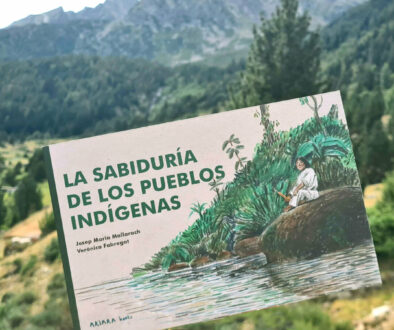Declaration on the International Environmental Education Day
Catalonia, Spain26 January 2021
Today, January 26, International Day of Environmental Education, we want to make public our position, which is also our commitment, not only thinking about our common good, but on future generations and all living beings of the Mother Earth.
We are in a critical period of history, facing a global ecological emergency with several and very serious consequences (food, social, health, etc.). In this context, environmental education becomes both fundamental and unavoidable. However, we wonder how five decades of environmental education have so little transformed the unsustainable attitudes and habits of a society that is heading for collapse. We understand that an indispensable reflection on the ideological basis that underpins modern Western civilization (scientific, anthropocentric and mercantilist worldview, culture of having and not of being, etc.) has been overlooked. The ancestral (ecosophical) knowledge present in the spiritual traditions, as well as in the indigenous peoples who are living immersed in nature and who are an example of resilience and care for their environment, can help us a lot in this questioning.
In this line, we consider that environmental education must highlight the danger of entrusting everything to an economy, a science and a technique detached from environmental ethics and a loving vision of Nature; that it is necessary to counter certain values (materialism, consumerism, etc.) with others that help us to live more harmoniously with Mother Earth (frugality, simplicity, etc.). We also believe that, alongside accurate data, rigorous reporting, and logical arguments, the intuitive and emotional language of the arts is essential, with its power to move us and arouse appreciation for nature; that, in addition to remembering our obligations to the environment, we need to foster experiences of admiration, belonging, joy, and gratitude.
Environmental education should also offer proposals for action that can be carried out and are consistent with what is being advocated (activities of deep connection with Nature, such as contemplation) and, with the help of criticism and denunciation, encourage participation in communities and transformative entities (consumer cooperatives, heritage safeguard movements, etc.). However, we are also convinced that environmental education inexcusably requires our own conversion: fostering interiority (virtues such as empathy, active hope, etc.), preaching by example, and listening the ‘wisdom of the Earth’ with a humble and committed attitude




